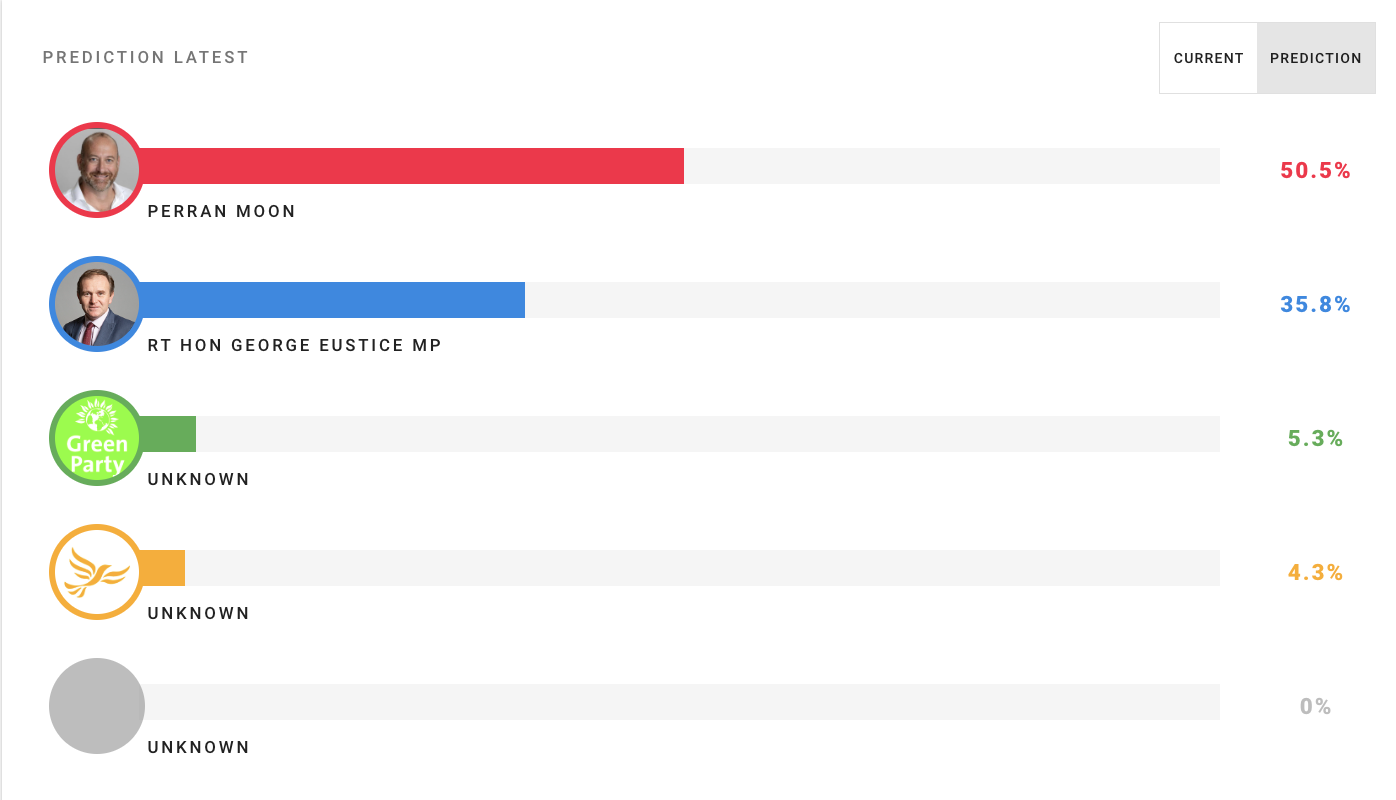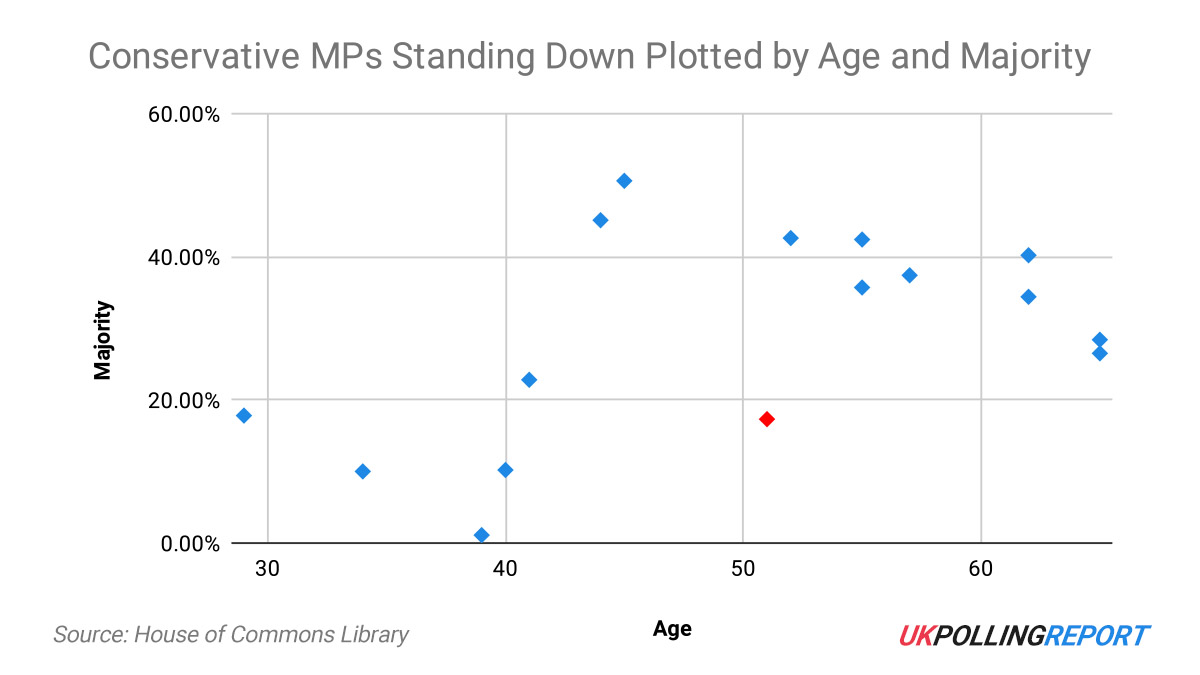230118 | Why George Eustice is Standing Down - 17.4% drop in votes 16% swing, set to lose out to Labour's challenger Perran Moon
A recent finding by UK Polling Report predicted Mr Eustice is set to lose his seat to Labour with a 17.3% drop in votes.
Despite the deadline for Conservative MPs declaring their decisions to stand down long-passing, George Eustice has now become the latest to join the ranks of quitting Conservatives. Considering the current state of national polling, it's difficult to imagine this decision was not at least informed by his electoral prospects.
On national swing, according to our model, Eustice is set to lose out to Labour's challenger Perran Moon. The current swing is expected to be around 16%, with Moon securing a 15% majority in a seat which had previously been Conservative. His successor certainly faces a difficult challenge.

This can be further contextualised when taken alongside our previous analysis of Conservatives deciding not to contest the next election.

Eustice, mapped in red, has a majority on the lower end of other Tory quitters, whilst being above the average age. His decision therefore seems unsurprising when he is in a more precarious position, and is further along in his career, than other Conservatives standing down. The combination of these factors is reflected in his own resignation statement, where he says "I will also be 53 and will have time to do, perhaps, one more thing in life", before reflecting on the historic marginality of his seat.
- Printer-friendly version
- Login or register to post comments
- Permalink
Contributions
- Angarrack Defibrillator Team (25)
- Angarrack Inn (336)
- Angarrack Methodist Chapel (3)
- Carol (15)
- Gail (1)
- GordonG (12)
- Hayle Development Group on Facebook (5)
- Hayle Harbour Authority (4)
- Hayle Town Council (5)
- louise (1)
- Lynne (94)
- Mal (1)
- MattBuckley66 (9)
- Neil (22)
- Neils Garden Care (9)
- Russell (21)
- Secretary - Christmas Lights (122)
- Steve (3)
- webmaster (5033)
Book page
tags in
Similar
- 221115 | Cornish MP admits to backing bad trade deal for UK
- 220505 | Prices at 'value brand' Tory minister's family farm shop dwarf supermarket rates George Eustice is 'trustee of family'
- 210320 | George Eustice MP urged to help Cornwall's shellfish fisherman CORNWALL Council ask him to 'urgently explore' help
- 210210 | Cornwall Council calls for action to tackle growing crisis in Cornish fishing industry
- 210210 | Bees: Britain is breaking its promise of better bee protections
Similar across site
- 230118 | Why George Eustice is Standing Down - 16^ swing, set to lose out to Labour's challenger Perran Moon
- 221115 | Cornish MP admits to backing bad trade deal for UK
- 220505 | Prices at 'value brand' Tory minister's family farm shop dwarf supermarket rates George Eustice is 'trustee of family'
- 210320 | George Eustice MP urged to help Cornwall's shellfish fisherman CORNWALL Council ask him to 'urgently explore' help
- 210210 | Cornwall Council calls for action to tackle growing crisis in Cornish fishing industry
George Eustice | George's Online Diary
George Eustice's recent appearances (TheyWorkForYou)
- Fisheries: Monitoring | Department for Environment, Food and Rural Affairs | Written Answers
- Fisheries: Monitoring | Department for Environment, Food and Rural Affairs | Written Answers
- Fisheries: Treaties | Department for Environment, Food and Rural Affairs | Written Answers
- Fisheries: Treaties | Department for Environment, Food and Rural Affairs | Written Answers
- UN Convention on the Law of the Sea | Department for Environment, Food and Rural Affairs | Written Answers
- Agriculture: Wales | Department for Environment, Food and Rural Affairs | Written Answers









Recent comments
14 weeks 2 days ago
49 weeks 6 days ago
51 weeks 4 days ago
51 weeks 4 days ago
1 year 9 weeks ago
1 year 21 weeks ago
1 year 46 weeks ago
2 years 4 weeks ago
2 years 16 weeks ago
3 years 41 weeks ago